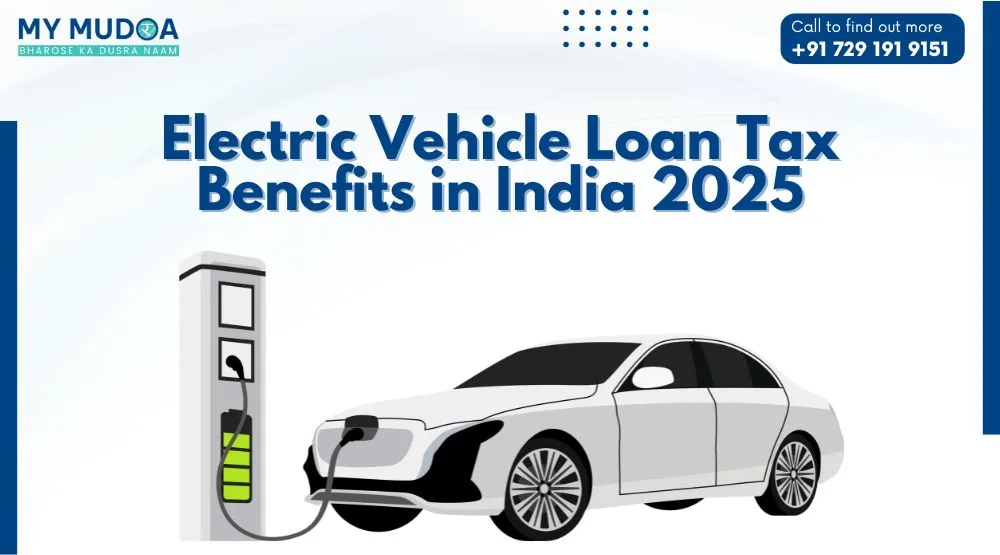
"Get detailed insights on electric car loan tax benefits in India 2025. Understand eligibility, deductions, and how to claim Section 80EEB benefits."

Published: 2 November 2025
Thinking of changing to an electric vehicle (EV) and taking a loan to finance it? You will be pleased to know that there are tax benefits available in India when you take an EV loan. Understanding how the electric vehicle loan tax benefit and EV loan tax exemption work will help you make the most of your purchase.
When you borrow money to buy an EV, the interest you pay on that loan may qualify for a deduction under a specific section of the Income Tax Act. In short:
This electric vehicle loan tax benefit plays an important role in supporting the growing demand for sustainable transport options under the electric vehicle tax benefit India 2025 initiative.
Here are the main features of the benefit:
To know more about the details of deduction, read the detailed guide on Section 80EEB.
You might take a loan for:
In each case:
An example can be:
Suppose you borrow ₹10 lakh to buy an electric car which is registered in your name. Let’s say the interest paid in a given year is ₹1.2 lakh. Since the cap is ₹1.5 lakh, you could deduct the full ₹1.2 lakh from your taxable income. If your interest paid is ₹2 lakh, you can deduct ₹1.5 lakh under Section 80EEB and the remaining ₹50,000 might be considered a business expense subject to other rules.
The electric car loan tax benefit helps you meet the eligibility rules. This also adds to the many advantages of electric vehicles.
Making the most of the EV loan tax exemption can help reduce your tax outgo. Combining the electric car loan tax benefit with other savings makes owning an EV a smart financial choice.
Apart from the interest deduction under Section 80EEB, there are other advantages of electric vehicles:
When you buy an electric vehicle in India, you can enjoy an electric vehicle loan tax benefit under Section 80EEB. Make sure you meet all the requirements and submit your taxes correctly. Doing this can help you lower the amount of tax you have to pay.
So keep your documents ready and choose the right tax regime. This way, your move to greener mobility also makes smart financial sense.
Under Section 80EEB, you can claim an electric vehicle loan tax benefit on the loan interest you pay. This benefit can go up to ₹1.5 lakh every financial year.
No. The loan should have been approved between 1 April 2019 and 31 March 2023. It does not qualify if it is taken after the given time.
Yes. Section 80EEB applies to any electric vehicle. You can get this as long as it fits the definition of an EV under the Act.
No. Only individual taxpayers can get a deduction under Section 80EEB.
Yes. You can still get this benefit if you are an individual and meet all the requirements. You can also claim an extra amount as a business expense if you pay more than ₹1.5 lakh in interest.
💬 Comments
Leave a comment or ask a question!
Please Enter Your Name
Please Enter Your Email
Please Enter Your Phone
Please Write Your Comment